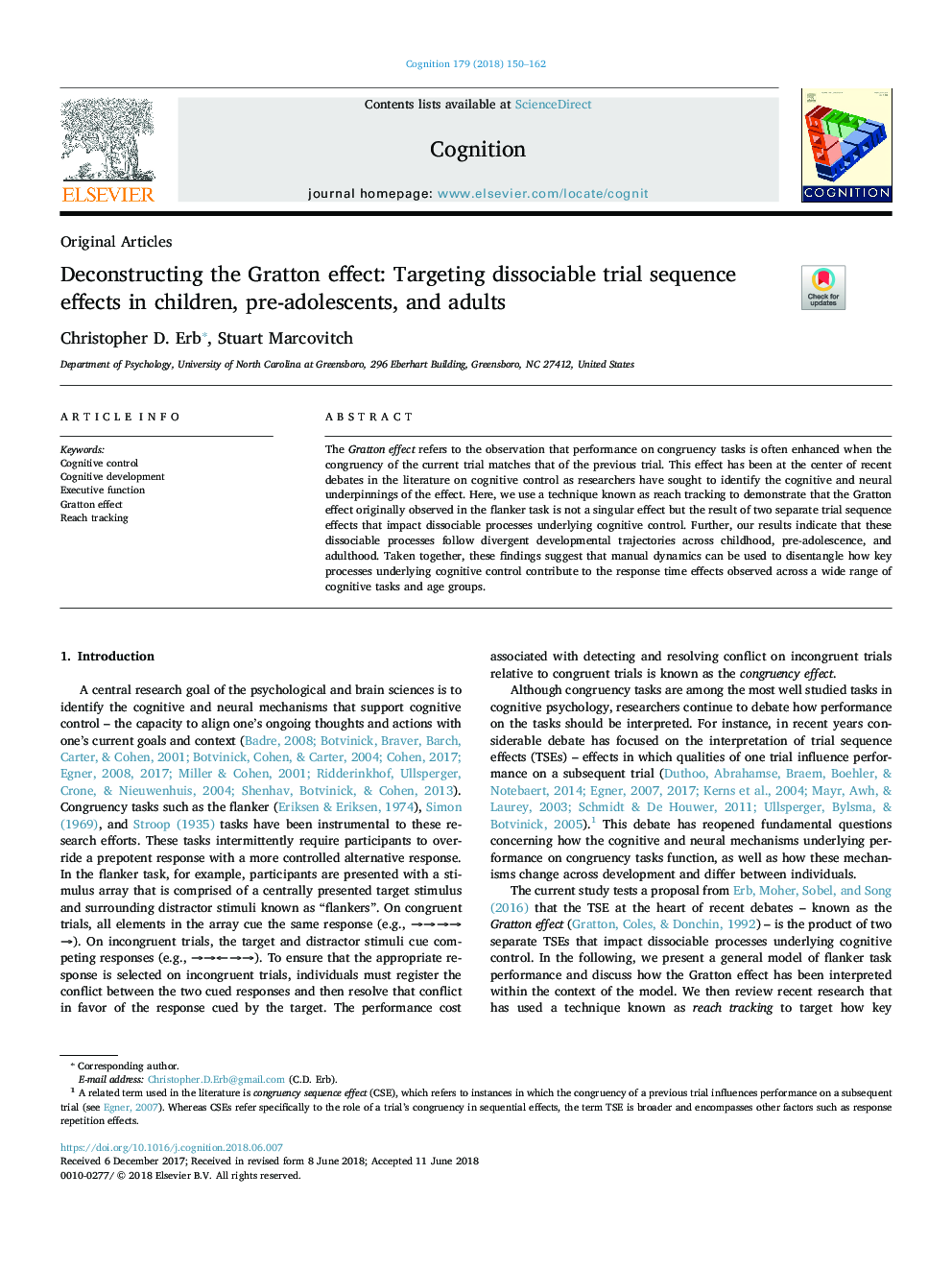| Article ID | Journal | Published Year | Pages | File Type |
|---|---|---|---|---|
| 7285160 | Cognition | 2018 | 13 Pages |
Abstract
The Gratton effect refers to the observation that performance on congruency tasks is often enhanced when the congruency of the current trial matches that of the previous trial. This effect has been at the center of recent debates in the literature on cognitive control as researchers have sought to identify the cognitive and neural underpinnings of the effect. Here, we use a technique known as reach tracking to demonstrate that the Gratton effect originally observed in the flanker task is not a singular effect but the result of two separate trial sequence effects that impact dissociable processes underlying cognitive control. Further, our results indicate that these dissociable processes follow divergent developmental trajectories across childhood, pre-adolescence, and adulthood. Taken together, these findings suggest that manual dynamics can be used to disentangle how key processes underlying cognitive control contribute to the response time effects observed across a wide range of cognitive tasks and age groups.
Related Topics
Life Sciences
Neuroscience
Cognitive Neuroscience
Authors
Christopher D. Erb, Stuart Marcovitch,
